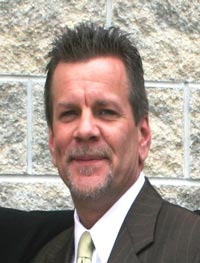Consumers Turn to the Internet for Health Information When the Stakes Are High
by Herb Newborg, D.C.
The internet is changing the way Americans connect with information when making health care decisions. Two major drivers for this change are broadband (high-speed) internet connections and personal motivation, according to Pew Internet & American Life Project associate director Susannah Fox.
The Pew Internet Project estimates that between 75% and 80% of American internet users have looked online for health information. This estimate is in line with Harris Interactive’s latest data on online health seekers (81% of internet users; 66% of all adults are searching online for health information).
Information Gathering Now a Habit for Many
This latest Pew Internet Project survey confirms that information gathering has become a habit for many Americans, particularly in the 55% of households with broadband connections. Home broadband has now joined educational attainment, household income and age as the strongest predictors of internet activity. For example, 78% of home broadband users look online for health information as compared to 70% of home dial-up users. Home broadband users are twice as likely as home dial-up users to do health research on a typical day—12% vs. 6%. High-speed, always-on connections enable frequent and in-depth information searches, which is particularly attractive if something important is at stake.
Disability, Disease Tend to Increase Internet Usage
People, who feel they have a lot at stake, are more likely to engage intensely with online resources. Internet users, living with a disability or chronic disease, are more likely to be wide-ranging online health researchers and to report significant impacts from those searches. For example, 75% of internet users with a chronic condition say their last health search affected a decision about how to deal with an illness or condition as compared to 55% of other e-patients (patients seeking health information online).
Newly diagnosed e-patients and those who have experienced a health crisis in the past year are also particularly tuned in: 59% say the information they found online led them to ask a doctor new questions or get a second opinion, as compared to 48% of those who had not had a recent diagnosis or health crisis; 57% of recently challenged or diagnosed e-patients say they felt eager to share their new health care knowledge with others, compared to 45% of other e-patients. Experienced e-patients are posting technical advice online about managing a certain disease as well as advising people about how to communicate with health care providers. Other e-patients are gaining national attention by documenting significant problems with a drug, problems that FDA failed to catch. Some people are uploading their “Observations of Daily Living” in order to track their symptoms or reactions to various medical interventions.
More than Convenience
It is not just the convenience that draws internet users, but the positive experiences that most people have with online research. In health, the impact of an online information search is more likely to be helpful, not harmful. Thirty-one percent of e-patients say they or someone they know has been significantly helped by following advice or health information found on the Internet. Only 3% of health seekers say they or someone they know has been seriously harmed by following the advice or information they found online.
In conclusion, the population of e-patients has stabilized at 75% to 80% of all internet users and it is clear that broadband allows people to engage more deeply with information sources and with each other. And circumstances such as a serious diagnosis can kick that engagement into high gear. The most affluent, highly educated and in need of care segment of the population is on the internet, looking for answers to their health challenges. There is a pressing need to present chiropractic (the world’s largest, most-established, licensed drugless health care option) to this ready, eager and actively searching majority of the American population with an organized, professionally designed and executed campaign. This unprecedented window of opportunity will not stay open forever.
 Herb Newborg is president of Chiropractic America. Chiropractic America and Ogilvy PR Worldwide firm, Feinstein Kean Healthcare (FKH) have developed a national marketing communications program centered on www.YourSpine.com, a website designed to educate patients about the importance of spinal health. You can reach him at 1-215-310-1735 or 1-877-846-8544
Herb Newborg is president of Chiropractic America. Chiropractic America and Ogilvy PR Worldwide firm, Feinstein Kean Healthcare (FKH) have developed a national marketing communications program centered on www.YourSpine.com, a website designed to educate patients about the importance of spinal health. You can reach him at 1-215-310-1735 or 1-877-846-8544
